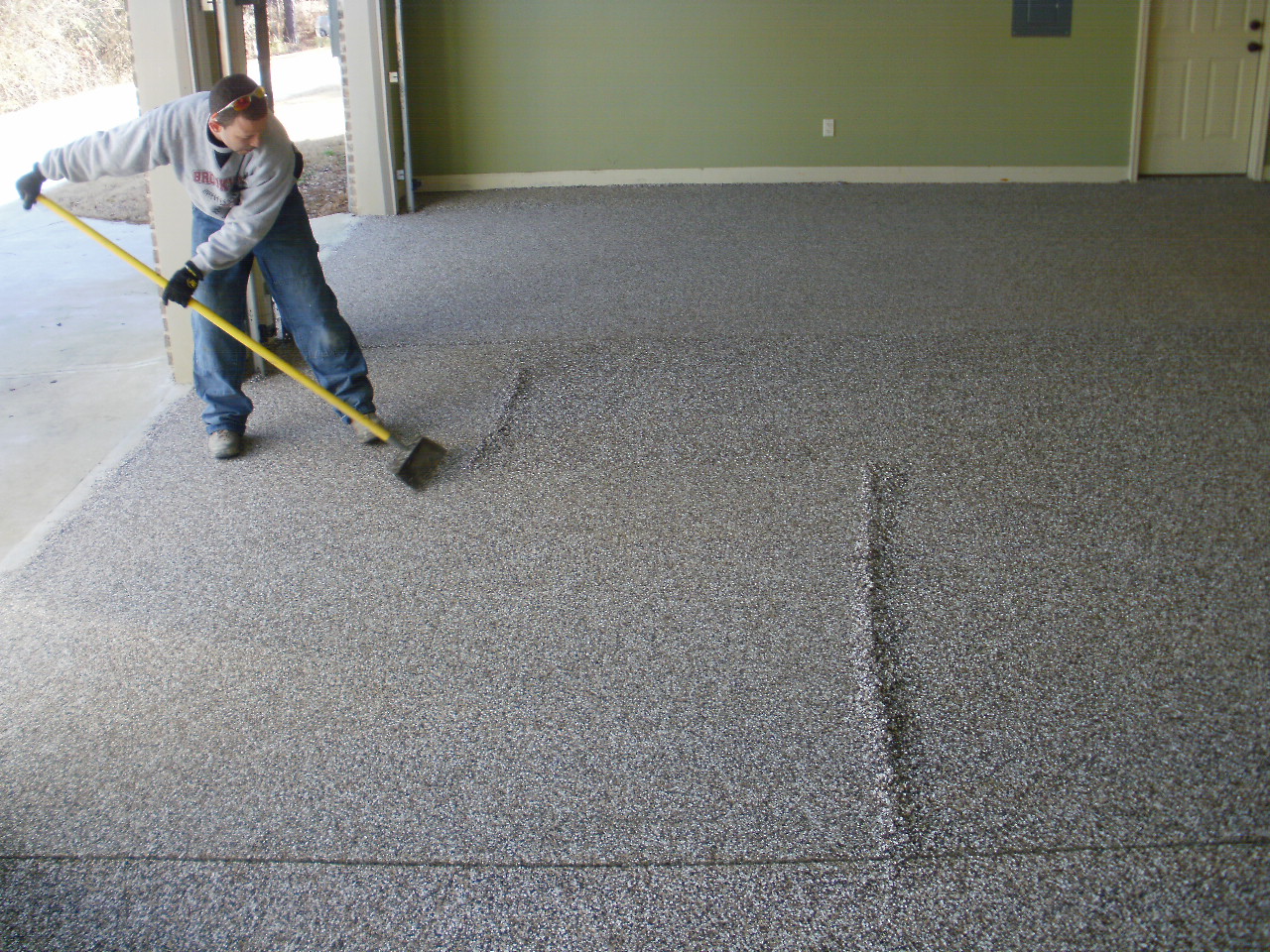
5 Things You Need To Know About Epoxy Floor Coating
Learning the basics of how to apply an epoxy floor coating isn’t hard. A quick search on the internet will reveal a list of simple step plans to get it done or an abundance of short videos to watch. They make it look easy enough, but what’s more difficult however is learning about the finer details of applying an epoxy coating once you decide to get started. That’s when you realize that you have more questions than answers.
What is epoxy? Epoxy defined as the cured end product of epoxy resins, as well as a colloquial name for the epoxide functional group. Epoxy is also a common name for a type of strong adhesive used for sticking things together and covering surfaces, typically two resins that need to be mixed together before use.Popular consumer two-part epoxy adhesives for home, shop, and hobby are available in stores ranging in a wide selection of properties, including slow vs. fast curing time, opaque vs. clear colors, water-proof vs water-resistant, and flexible vs. rigid. A common misconception is that all epoxies are waterproof, however many – perhaps most – are not recommended for long-term submersion (such as flower vases) nor below the water line. Also, some epoxies bond better than others to different materials – even to different metals.
This said material is known in Singapore especially in their Housing and Development Board (HDB) projects as using of epoxy floor coating in Singapore is said to be cost efficient and will flooring tiles will last long compared to others.
So what are the things you need to know then?
Do Proper Floor Preparation
The single biggest reason that application your garage epoxy floor coating fail is due to poor floor preparation. This is where all the hard work is at and is why it is so crucial to learn how to do properly. Many times a good epoxy product is put to blame when actually it was the fault of applying it to a poorly primed surface.
Check Your Floor
Inspect your garage floor to make sure that the concrete will accept the floor coating. Epoxy will not adhere to sealed or painted concrete. The same also applies to any cure and seal product that was applied to the concrete after it was poured.
Do a Moisture Test
If there are visible signs of moisture you will want to conduct a calcium chloride test to see if your garage floor will qualify for an epoxy coating. Most commercial epoxy products can withstand up to 4 lbs of moisture flow per 1000sf² per 24 hours. Always consult with the epoxy manufacturer first concerning the results of your calcium chloride test if you have moisture issues.
Even if the garage floor looks dry, moisture could be evaporating off the surface quicker than it can form and not be visible to the naked eye. At the minimum, you want to do the plastic sheet test if the concrete doesn’t show any visible signs of moisture. You wouldn’t want your epoxy floor coating to go to waste because of moisture.
Make sure the Floor is Clean
Once you have decided that the garage floor will accept an epoxy coating, the next step is to clean the surface of the garage floor. If the floor is new or free from any oils or greasy residues, then you can just sweep it good and continue on to the next step.
Complete your Garage Floor Repairs
Once clean, the next step is to make repairs to the garage floor where needed. Don’t use a latex crack repair product when applying a garage floor coating. Latex products are soft relative to the concrete and the epoxy. Additionally, latex repair products will shrink as they age and can create a depression underneath the floor coating that can highlight the repair and cause it to crack under pressure.
That’s it, you should be good to go.
